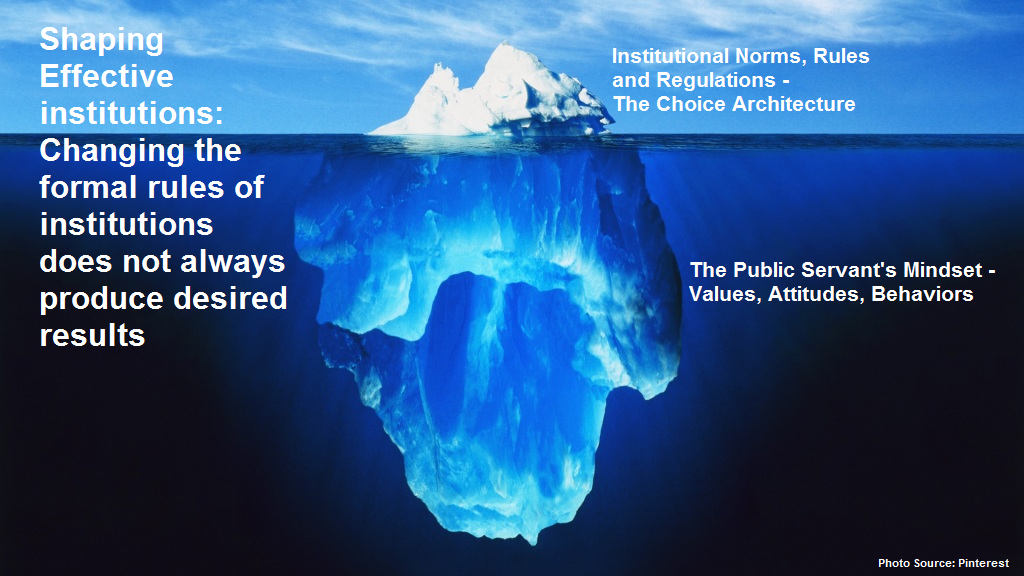The UNPOG Public Governance Quarterly
Changing Public Service Mindsets, Behavior, and Practice for the SDGs
Changing Public Service Mindsets, Behavior, and Practice for the SDGs

Public administration systems are the backbone to achieve the SDGs across countries. The individual decisions, habits, mindsets and behaviors of civil service across developed and developing country economies worldwide have enormous aggregate implications for advancing the 17 SDGs and 169 Targets. These individual behaviours include, for example, how civil servants implement plans for the SDG targets, prioritise SDG topics, or think critically to innovate and integrate new technologies and evidence-based solutions for better government. The behaviours making up development patterns across economies today are often rooted in habits, mental shortcuts, choice architecture or cognitive biases that act as barriers to change. However, even when individuals have the ideal knowledge, skills, values, or choice architecture to engage in better behaviours, they may still fail to change, highlighting an intention-action gap.1) Civil service management structures must be designed to assess the barriers preventing change, while integrating and addressing the mental shortcuts and cognitive biases that can more effectively shift behaviour and wider social norms for the SDGs. There are also core competencies that can be built into civil service performance structures to which the 2030 Agenda takes a holistic approach. Also, current administration systems may have competency gaps. Competency gaps can also differ from national to local levels or horizontally across government, where civil servants may not even have knowledge of the SDGs three years after adoption of the 2030 Agenda (A/RES/70/01). In response, UN DESA is partnering with public administration schools and civil service colleges and UNPOG is leading the development of a task force in the Asia-Pacific region for this purpose. This effort aims to bring public administration schools, civil service colleges, and similar training and policy institutes together to develop updated curricula and training that sets the core mindsets, behaviours and practice for civil servants to learn about the SDGs, integrate them into planning across government and develop core competencies needed to achieve the 2030 Agenda.
1. Soman, D. (2017). The Last Mile: Creating Social and Economic Value from Behavioral Insights. International Journal of Market Research, 59(6), 829 DOI: 10.2501/IJMR-2017-056.
Sara Castro-Hallgren
Programme Expert, UNPOG, DPADM, UN DESA
Programme Expert, UNPOG, DPADM, UN DESA


